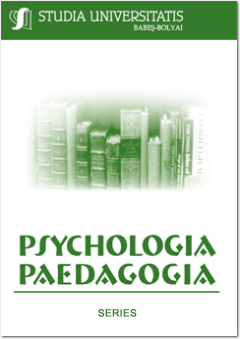USERS’ SATISFACTION WITH REGARD TO TA’ASIYEDA INTERVENTION PROGRAM FOR PROMOTING TECHNOLOGICAL EDUCATION THROUGH COLLABORATION WITH THE INDUSTRY
USERS’ SATISFACTION WITH REGARD TO TA’ASIYEDA INTERVENTION PROGRAM FOR PROMOTING TECHNOLOGICAL EDUCATION THROUGH COLLABORATION WITH THE INDUSTRY
Author(s): Carmen Mihaela Creţu, Aviva MishaeliSubject(s): Social psychology and group interaction, Developmental Psychology, Methodology and research technology
Published by: Studia Universitatis Babes-Bolyai
Keywords: Technological Education; Ta’asiyeda Educational intervention programs; increasing students’ motivation; required skills;
Summary/Abstract: Israel, like many other countries worldwide, suffers from a lack of skilled human resources with technological qualifications. Ta’asiyeda, an association established by the Manufacturers’ Association, has operated for the past 27 years an educational intervention program to promote students to technological routes and prepare them for the labor market by creating cooperation between the education sector, industry and employers. A formative evaluation research was conducted using quantitative methods to identify the level of satisfaction with the intervention program expressed by principals, teachers and industry staff. For this research, a new questionnaire was developed and validated and quantitative statistical data was collected from 222 participants (principals, teachers and industrialists) that participated in the Ta’asiyeda program. The research results show that all program participants were equally satisfied with Ta’asiyeda’s contribution with regard to the five aspects examined in the research: The collaboration between the industry and schools; Pedagogic components of the intervention program (knowledge, values and skills); The implementation process of this educational model in Israel; Students’ motivation for technological education; Contribution to participants (from the education system and the industrial system). In comparisons conducted between the research populations, it was found that in the cases of significant differences, industrialists were more critical and less satisfied. With some aspects, respondents from high schools were less satisfied than respondents from junior high schools. And industrialists from the high-tech industry and from the low-tech industry ranked their satisfaction similarly and relatively high. The research conducted proposes an effective optimal feasible model to help the organization make decisions leading to program improvement. The research conclusions can be adapted to other countries that cope with this issue of connecting education and industry for promoting and encouraging technological education in schools.
Journal: Studia Universitatis Babes-Bolyai - Psychologia-Paedagogia
- Issue Year: 64/2019
- Issue No: 2
- Page Range: 5-27
- Page Count: 23
- Language: English

